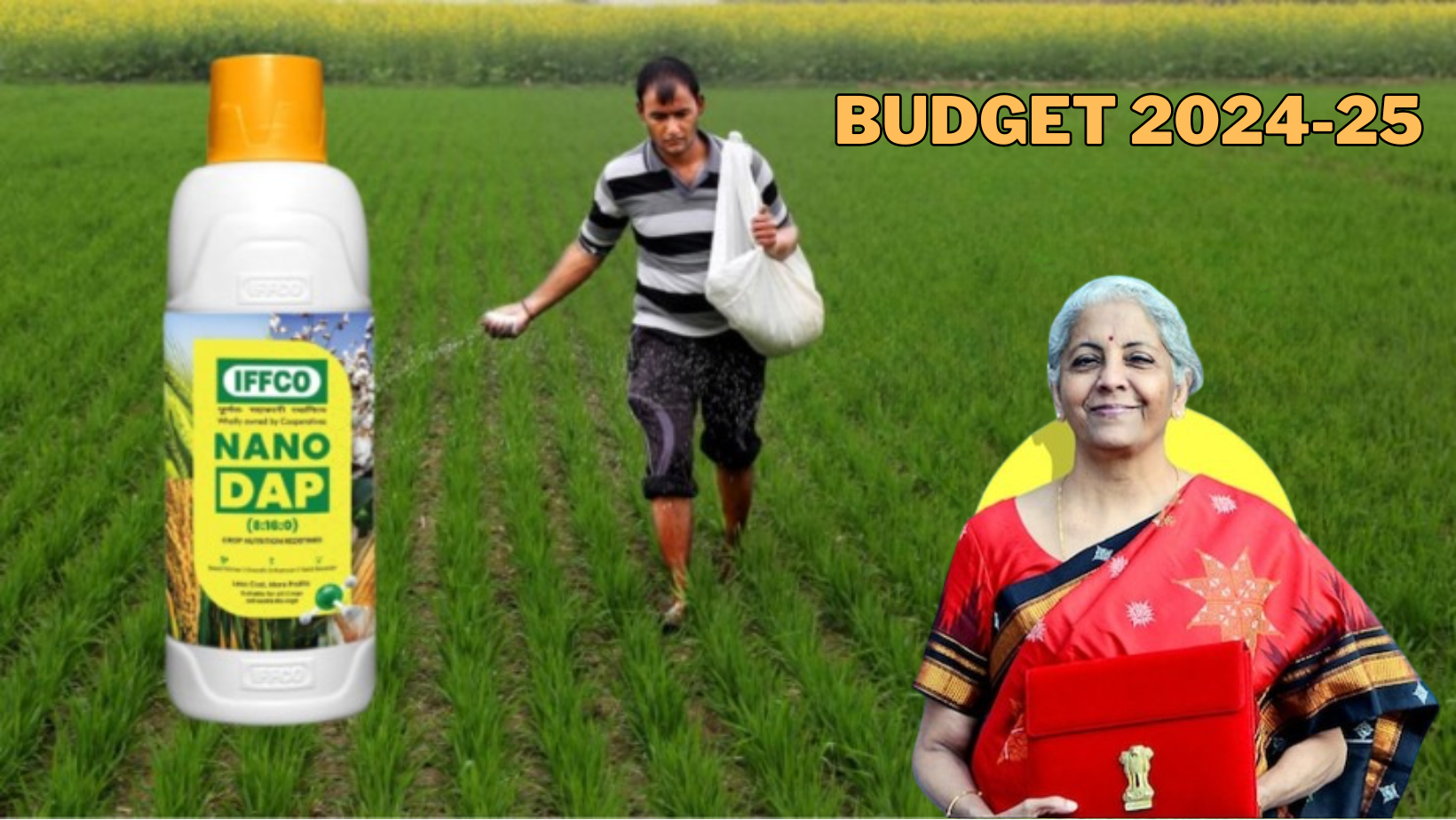Expansion of Nano DAP (Indian Express)

- 02 Feb 2024
Why is it in the News?
Finance Minister Nirmala Sitharaman, presenting the interim budget on (February 1), announced the expansion of the application of Nano DAP on various crops in all agro-climatic zones.
What is DAP?
- Di-ammonium Phosphate (DAP) is a fertilizer containing phosphorus and nitrogen, crucial nutrients for plant growth.
- Its chemical formula is (NH?)?HPO?. DAP is widely utilized in agriculture to offer plants a quick and easily accessible nutrient source.
- It ranks as the second most utilized fertilizer in India, following urea. Notably, DAP is rich in phosphorus (P), which plays a vital role in promoting root establishment and development.
- Application of DAP is typically done just before or at the time of sowing to ensure optimal plant growth and development.
What is Nano DAP?
- Nano DAP is an innovative liquid fertilizer formulation comprising nanoparticles of Diammonium Phosphate (DAP).
- Serving as a rich source of nitrogen and phosphorus, the two primary nutrients crucial for crop growth, Nano DAP offers unique advantages.
- Its small particle size, measuring less than 100 nm, coupled with a high surface area, facilitates easy absorption by plant leaves.
- This novel nano-formulation contributes to enhanced crop growth and yield, decreased environmental impact, and improved profitability for farmers.
Why Nano DAP?
- In addition to being more efficient than conventional DAP, Nano DAP has a few other benefits.
- First, it is more pocket-friendly than its conventional counterpart.
- A 500 ml bottle of Nano DAP, equivalent to a 50-kg bag of conventional DAP, is priced at only Rs 600 (compared to Rs 1,350 for the bag).
- Since the government provides significant subsidies on DAP, the adoption of a more inexpensive fertiliser will likely be a significant relief to the government’s subsidy burden.
- Second, for farmers, Nano DAP is also significantly more convenient.
- Simply put, 500 ml bottles are easier to transport, store, and use than 50kg bags.
- The fertiliser is sprayed on crops, with 250-500 ml of DAP, dissolved in water, required per spray, per acre.
- Most importantly, however, India currently imports significant quantities of fertiliser to meet domestic demand.
- The adoption of domestically-produced Nano DAP — produced in Kalol, Gujarat — is set to significantly reduce this import burden.
- This revolutionary step will not only take Indian agriculture forward in foodgrain production but it will also make India self-reliant in fertiliser production.
- The adoption of Nano DAP will help in achieving self-sufficiency in fertilisers and greatly benefit our farmers.
